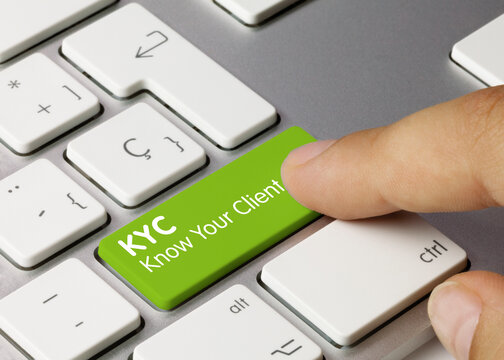
DATE: 20 Oct 2023
The United Arab Emirates (UAE) is known for its booming real estate sector, with properties in Dubai, Abu Dhabi, and other emirates attracting investors and expatriates from around the world. While the real estate market in the UAE presents numerous opportunities, it also faces a unique set of challenges related to financial security. With large sums of money involved in real estate transactions and relatively limited regulatory scrutiny, it’s essential to address vulnerabilities related to transparency and financial integrity, as it’s crucial to ensure that these transactions are conducted with the utmost transparency, legality, and security.
The Importance of KYC in Real Estate:
Real estate transactions typically involve significant sums of money, making them a prime target for fraud. KYC helps in verifying the identities of both buyers and sellers, reducing the risk of fraudulent activities such as identity theft, forgery, and property-related scams.
The real estate sector has, at times, been used for money laundering purposes. Criminals often attempt to invest illegal funds into the real estate market to legitimise their gains. KYC helps in identifying suspicious financial activities and ensuring that funds used in transactions are legitimate.
Governments and regulatory bodies have introduced stringent regulations to monitor and control real estate transactions. KYC is a vital part of compliance with these regulations. Non-compliance can lead to severe legal consequences for both individuals and real estate businesses.
Real estate transactions involve personal information and financial details that should be handled with the utmost care. KYC procedures ensure that sensitive data is protected and secure, reducing the risk of data breaches and identity theft.
Real estate professionals and companies that prioritise KYC practices build a reputation for transparency and trustworthiness. This can attract more clients and investors who value the security and legitimacy of their transactions.
KYC procedures streamline the due diligence process by providing a clear understanding of the parties involved in a transaction. This leads to quicker and more efficient real estate deals.
The implementation of KYC in the Real Estate industry involves several key steps:
Relevant Laws and Regulations for DNFBPs, or Designated Non-Financial Businesses and Professions
– Federal Decree-Law No. (20) of 2018 On Anti-Money Laundering and Combating the Financing of Terrorism and Financing of Illegal Organisations,
– Implementing regulation, Cabinet Decision No. (10) of 2019 Concerning the Implementing Regulation of Decree-Law No. (20) of 2018 On Anti-Money Laundering and Combating the Financing of Terrorism and Illegal Organisations,
– Cabinet Decision No. (20) of 2019 Regarding Terrorism Lists Regulation and Implementation of UN Security Council Resolutions On the Suppression and Combating of Terrorism, Terrorists Financing & Proliferation of Weapons of Mass Destruction, and Related Resolutions,
– AML/CFT Guidelines for Financial Institutions and Designated Non-Financial Businesses and Professions issued by supervisory authority (such as FSRA or DFSA),
– UAE Ministry of Economy’s Guidelines for Designated Non-Financial Businesses and Professions,
– UAE Ministry of Economy’s Supplemental Guidance for specific sector (such as Real Estate Sector, Dealers in Precious Metals and Stones, etc.)
In an era where financial crimes and illicit activities are on the rise, KYC has become a non-negotiable component of the real estate industry. Its importance cannot be overemphasised enough, as it is instrumental in upholding the integrity and security of property transactions. With governments and regulatory bodies tightening their oversight of real estate regulations, KYC is set to become even more critical. By adhering to KYC practices, the real estate industry can foster trust, safeguard transactions, and ensure that the buying and selling of properties remain transparent and above board.
AUTHOR: MM
Sign up and recieve all news, updated on new properties, special offers and other discount informations.
Contact Us
Popular Communities
Luxury Collection